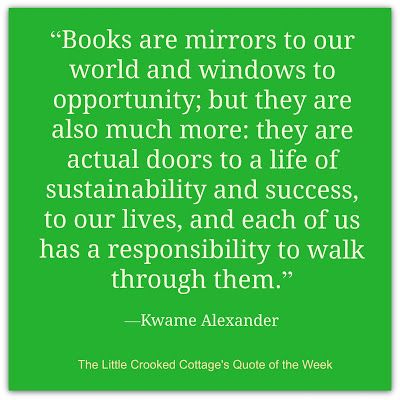This week, Sara Hildreth, of Fiction Matters and one of my favorite bookish people on the internet, joined Laura Tremaine, another one of my favorite creators, to answer one of my favorite questions- why read fiction? Needless to say, I just spent a very pleasant hour listening to the latest episode of Laura’s podcast, 10 Things to Tell You and now I have to share my thoughts.
Sara and Laura’s conversation reminded me of something I have been thinking a lot about lately- books as mirrors and books as windows. As a parent and a past educator, I know the importance of children seeing themselves (mirrors) and gaining a greater understand of others (windows) in the literature they read in school and at home.
I’ve learned first hand that mirror books, the types of books that I frankly gravitate toward, are crazy important because they make readers feel comfortable. And a comfortable reader is a reader who will read more often. So I am grateful that my children and I grew up reading a slew of mirror books. As a result, we are readers. But…. I have also learned that my children and I need to read more window books because reading window books teach us important things about worlds we do not know. If I am feeling really motivated and ready to stretch outside my comfort zone, I find these books easy to read. For example, I recently read Transcendent Kingdom by Yaa Gyasi and loved it. Gifty is a scientist, an immigrant, the daughter of a depressed mother and the sister of a heroine addict. I have nothing in common with Gifty and reading her story opened my mind to experiences that are completely unfamiliar. Gyasi’s writing and Gifty’s story pulled me in and I read the book in only a few days. Sometimes though, this doesn’t happen. Sometimes, reading books with characters and places and circumstances different from my own is hard. And sometimes, because I am human, I put off doing hard things. And think of all the opportunities I miss when I put window books aside to read something more familiar and therefore more comfortable?
Also, though think about the students growing up today who encounter few to no mirror books in their classrooms? Publishers and curriculum writers are now putting energy in to diversifying but it has taken a long, long time to get to this point and the pace of change is glacially slow. Here’s to faster progress so that all people have equal access to both mirror books and window books. The importance of both in the lives of readers can not be overstated.
So, to answer Sara and Laura’s question- why do I read fiction? I read fiction to learn about myself and about others. Now it’s your turn.
Tell me why you read fiction. And if you don’t read fiction, why don’t you?



